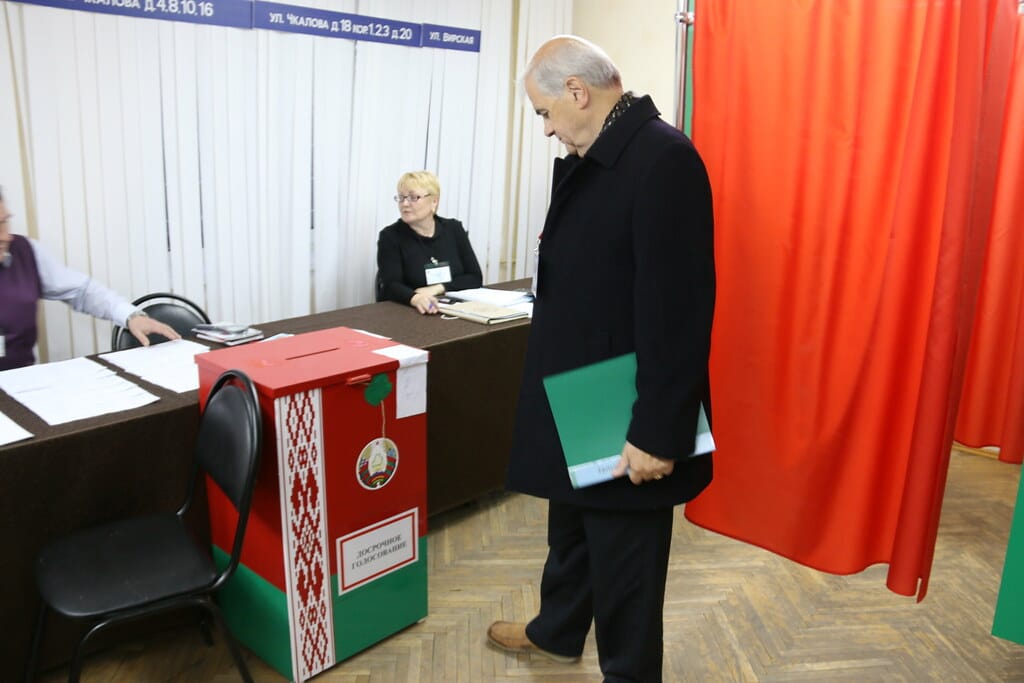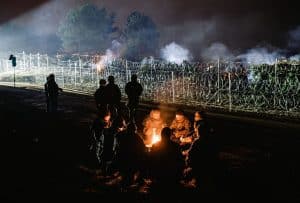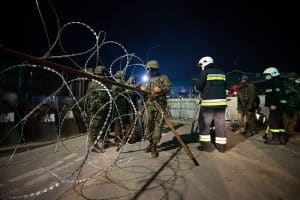On 17 November parliamentary elections were held in Belarus, with many reports from media and NGOs condemning the electoral campaign leading op to the elections as unfair. There was no belief that the opposition had a real chance of challenging the regime of President Alyaksandr Lukashenka, but with no opposition candidate winning a seat, the elections proved to be worse than the parliamentary elections held in 2016. At the time, 2 opposition candidates, Hanna Kanapatskaja and Aljona Anisim, managed to get into the legislative chamber. Kanapatskaja and Anisim were , among other opposition members, barred from running in the recent elections. The OSCE released a statement on November 18, condemning the electoral campaign and procedures on election day: “ Obstacles to political party registration, fees and limited space for holding public gatherings, and criminal sanctions for defamation” tarnished the snap polls’”. Margareta Cerdefel, leader of the OSCE short-term observer mission said that the elections demonstrated an overall lack of respect for democratic commitments. None of the elections held under the rule of President Lukashenka have been recognized as fair by international observers.
Results
Preliminary results show that all 110 elected candidates belong to parties loyal to President Aliaksandar Lukashenka. The elected candidates represent the Communist Party, the Republican Party of Labor and Justice, the Patriotic Party, the Agrarian Party, and the Liberal Democratic Party. Half of the new deputies are government employees, with thirty members of the last parliament getting reelected. The central election commission put voter turnout at 77 percent. Overall 500 candidates ran in the elections, with over 200 candidates, mainly from opposition parties, being barred from running, allegedly for failing to submit enough valid signatures to be allowed to register as candidate. According to the OSCE, both early voting and election day were calm. While the opening and voting procedures at polling stations were mostly followed, significant shortcomings during vote counting gave rise to concerns about whether the results were counted and reported honestly. The regime tried to boost voter turnout by offering food buffets at polling stations, giving free dental consultations and holding lotteries for notebooks and smartphones at other polling stations. Still a quarter of the votes were cast by early voting, which took place form 12 till 16 November. The process of early voting is seen by the opposition as an easy way to fraud: during the process ballot boxes stand unguarded while votes are counted without observers present.
Lukashenka seeks another term
On 17 November, with people still casting their votes at the polling stations across the country, Lukashenka announced that he would seek to remain in office for another term. With the presidential elections taking place in 2020, Lukashenka added it “would be stupid” to amend the country’s constitution before the presidential ballot, stating that he would not cling to power if the people do not support him. He added “I won’t hang on to my seat with my fingers turning blue”. Lukashenka has ruled the country for 15 years, currently serving his 5th presidential term. The limit on presidential terms was abolished after a referendum in 2004. Speaking to reporters after voting at a polling station in Minsk, the President brushed off doubts about whether the parliamentary vote would be deemed valid by Western observers. “If society doesn’t like how the president organizes this election, they can choose a new one next year,” he said.



